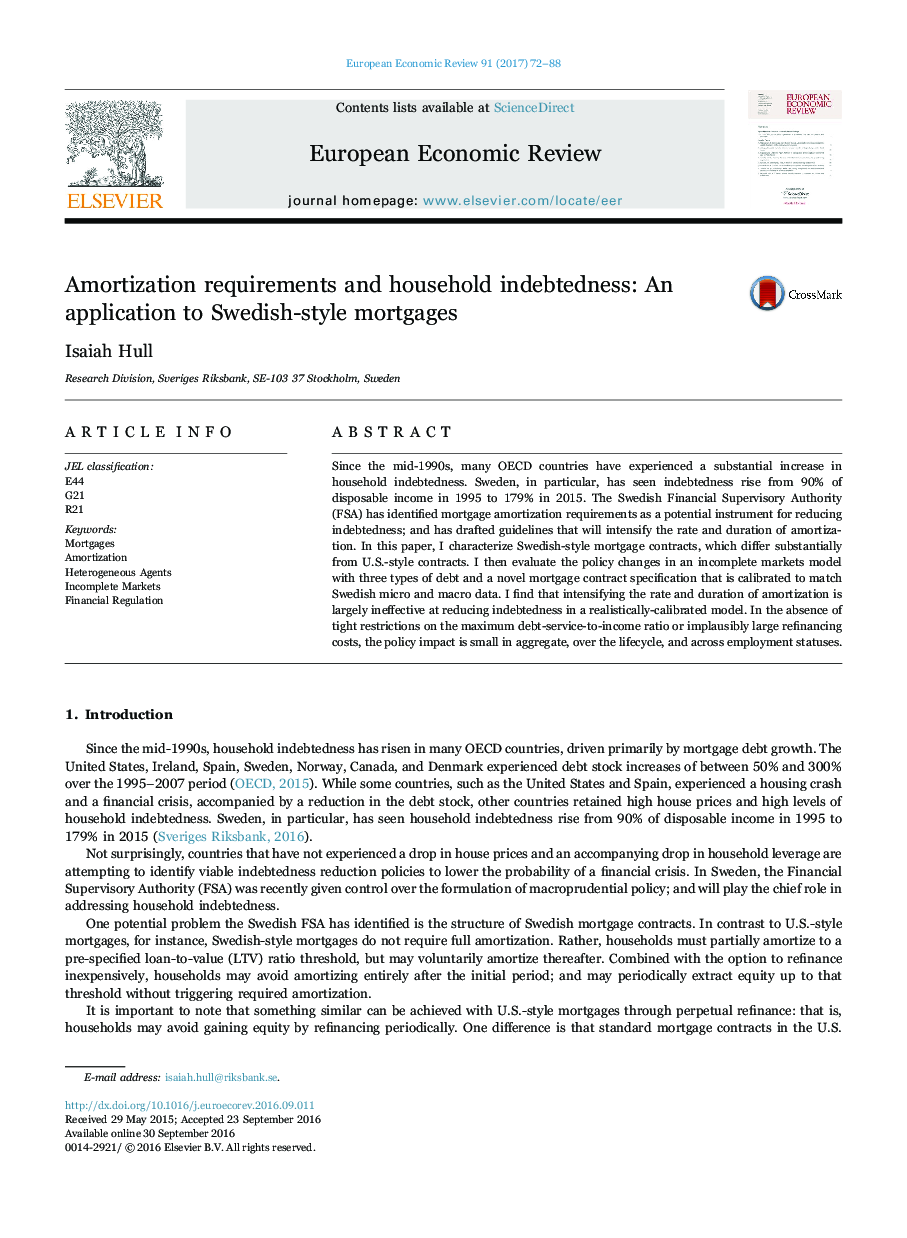| Article ID | Journal | Published Year | Pages | File Type |
|---|---|---|---|---|
| 5066352 | European Economic Review | 2017 | 17 Pages |
Since the mid-1990s, many OECD countries have experienced a substantial increase in household indebtedness. Sweden, in particular, has seen indebtedness rise from 90% of disposable income in 1995 to 179% in 2015. The Swedish Financial Supervisory Authority (FSA) has identified mortgage amortization requirements as a potential instrument for reducing indebtedness; and has drafted guidelines that will intensify the rate and duration of amortization. In this paper, I characterize Swedish-style mortgage contracts, which differ substantially from U.S.-style contracts. I then evaluate the policy changes in an incomplete markets model with three types of debt and a novel mortgage contract specification that is calibrated to match Swedish micro and macro data. I find that intensifying the rate and duration of amortization is largely ineffective at reducing indebtedness in a realistically-calibrated model. In the absence of tight restrictions on the maximum debt-service-to-income ratio or implausibly large refinancing costs, the policy impact is small in aggregate, over the lifecycle, and across employment statuses.
